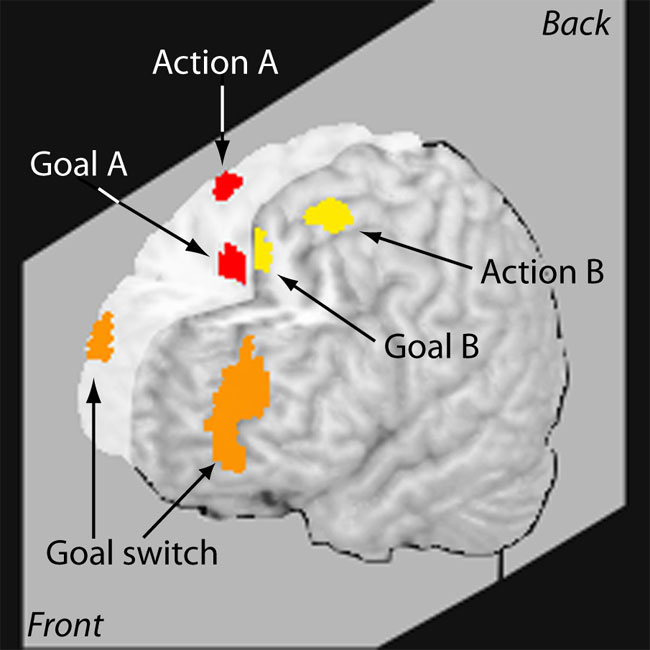Why We Can't Do 3 Things at Once

For those who find it tough to juggle more than a couple things at once, don't despair. The brain is set up to manage two tasks, but not more, a new study suggests.
That's because, when faced with two tasks, a part of the brain known as the medial prefrontal cortex (MFC) divides so that half of the region focuses on one task and the other half on the other task. This division of labor allows a person to keep track of two tasks pretty readily, but if you throw in a third, things get a bit muddled.
"What really the results show is that we can readily divide tasking. We can cook, and at the same time talk on the phone, and switch back and forth between these two activities," said study researcher Etienne Koechlin of the Université Pierre et Marie Curie in Paris, France. "However, we cannot multitask with more than two tasks."
The results will be published this week in the journal Science.
Multitasking in the brain
The MFC is thought to be part of the brain's "motivational system." Specifically, it helps monitor the value of rewards and drives a person's behavior according to that value. In other words, it's where rewards are represented in the brain.
Scientists knew that a region at the very front of the brain, called the anterior prefrontal cortex (APC), was involved in multitasking . But they weren't sure how the MFC was involved. Are the rewards for the different tasks represented separately? Or summed together?
Sign up for the Live Science daily newsletter now
Get the world’s most fascinating discoveries delivered straight to your inbox.
Koechlin and his colleagues had 32 subjects complete a letter-matching task while they had their brains scanned with functional magnetic resonance imaging (fMRI). The subjects saw uppercase letters on a screen and had to determine whether those letters were presented in the correct order to spell out a certain word. They were given money if they performed the task with no errors.
The researchers saw that, the higher the monetary reward, the more activity there was in the MFC.
But then they made the task more difficult. In addition to uppercase letters, the subjects were also presented with lowercase letters, and had to switch back and forth between matching the uppercase letters to spell out, say, T-A-B-L-E-T, and lowercase letters to spell out t-a-b-l-e-t.
During this dual task, the MFC divided up the labor. One hemisphere of the brain encoded the reward associated with the uppercase letter task, and so showed activity during that task, while the other region encoded the reward associated with the lowercase task, Koechlin said.
Essentially, the brain behaved "as if each frontal lobe was pursuing its own goal," Koechlin said.
To make things even more complicated, the researchers introduced a third letter-matching task. Here, they saw the subject's accuracy drop considerably. It was as though, once each hemisphere was occupied with managing one task, there was nowhere for the third task to go.
"[The] subjects perform as if they systematically forget one of the three tasks," Koechlin told LiveScience.
Decision-making
The results might also explain why humans seem to have a hard time making decisions between more than two things, Koechlin said.
Previous work has indicated that people like binary choices, or decisions between two things. They have difficulty when decisions involve more than two choices, Koechlin said. When faced with three or more choices, subjects don't appear to evaluate them rationally; they simply start discarding choices until they get back to a binary choice.
This is perhaps because your brain can't keep track of the rewards involved with more than two choices, Koechlin said.

Rachael is a Live Science contributor, and was a former channel editor and senior writer for Live Science between 2010 and 2022. She has a master's degree in journalism from New York University's Science, Health and Environmental Reporting Program. She also holds a B.S. in molecular biology and an M.S. in biology from the University of California, San Diego. Her work has appeared in Scienceline, The Washington Post and Scientific American.










